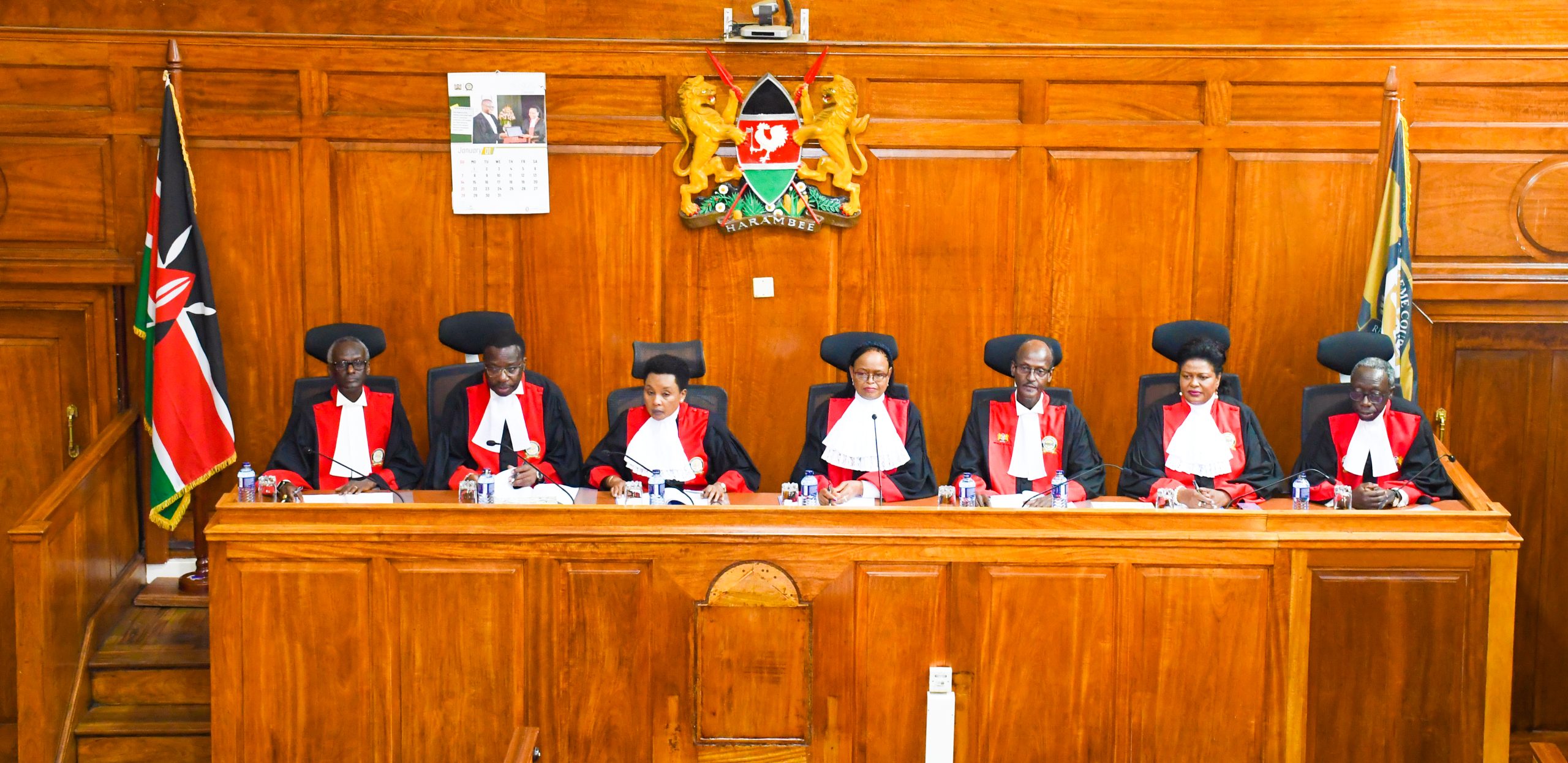
The August Question: Jurisdictional Fault Lines in Kenya’s General Election Calendar
The August Question: Jurisdictional Fault Lines in Kenya’s General Election Calendar
On August 15, the Supreme Court of Kenya delivered a ruling on an application for leave to admit a filed petition regarding the next general election date. Three petitioners—Dr. Owiso Owiso, Khelef Khalifa, and Ashioya Biko—had approached the Court seeking a declaration that the next general election should be held in August 2026, not August 2027. Their argument hinged on the interpretation of Article 136(2)(a) of the Constitution, which states that presidential elections shall be held “on the same day as a general election of Members of Parliament, being the second Tuesday in August in every fifth year.” The petitioners contended that the phrase “in every fifth year” should be understood to mean “within” the fifth year, not after its completion. They calculated the current electoral cycle from the last election date—August 9, 2022—and argued that the fifth year would run from August 9, 2026 to August 8, 2027. Therefore, they claimed, the next election should be held on August 11, 2026, to avoid exceeding the constitutional term.
The application for leave was the subject of the interlocutory ruling, however the responses filed by the respondents (in the form of preliminary objections) and one interested party were directed at the petition itself. Both the Attorney General and the Independent Electoral and Boundaries Commission (IEBC) raised strong jurisdictional objections, arguing that the Supreme Court lacked the authority to entertain pre-election disputes such as the timing of presidential elections. They contended that the Court’s original jurisdiction under Article 163(3)(a) must be read in tandem with Article 140, which only empowers the Court to hear disputes arising after the declaration of a president-elect. IEBC referenced Owners of the Motor Vessel “Lillian S” v Caltex Oil Kenya Ltd [1989], which established that a court must “down its tools” the moment it realizes it lacks jurisdiction. These authorities collectively underscored that the petitioners had approached the wrong forum and that any dispute over election timing should be filed before the High Court under Article 165(3)(d), which vests it with original jurisdiction over constitutional interpretation.
Mr. Raila Odinga as the 4th Interested Party filed his preliminary objection to the application for leave, raising procedural and jurisdictional objections. In his submissions, he invoked the doctrine of res judicata, emphasizing that the question of the general election date had already been conclusively adjudicated by various courts.
In its determination, the Supreme Court struck out the application with reasons that the simultaneous filing of the petition and the application for leave to admit it procedurally untenable and legally absurd. The Court noted that once a petition is filed, seeking leave to admit it is superfluous and unsupported by any constitutional or statutory provision. On jurisdiction the Court held that its original jurisdiction under Article 163(3)(a), as read with Article 140 of the Constitution, is strictly confined to disputes arising after the declaration of a president-elect and cannot be invoked to determine pre-election matters such as the timing of a general election. To reinforce this position, it cited the case of Macharia & Another v Kenya Commercial Bank Ltd & 2 Others [2012], where the Supreme Court held that jurisdiction cannot be expanded through judicial innovation or procedural creativity. It also cited Okoiti v IEBC & Another [2020] KESC 68 (KLR) on the inadmissibility of anticipatory presidential election petitions and Ekuru Aukot v IEBC & 3 Others [2017], where the High Court affirmed that questions of constitutional interpretation—such as the meaning of “fresh elections”—fall within the High Court’s domain, not the Supreme Court’s.
Regarding the date of election, the court acknowledged John Harun Mwau & 3 Others v Attorney General & 2 Others (2012) where the High Court was tasked with determining the date of the first general election under the 2010 Constitution. While the transitional provisions in the Sixth Schedule governed the timing of the 2013 elections, the Court clarified that all subsequent elections must adhere to the fixed formula: the second Tuesday of August in every fifth year. The judges recognised that the transitional election might result in a slightly shorter term for the first set of elected officials, but emphasized that this was consequence of constitutional transition. Going forward, the Constitution mandates a fixed election date and a full five-year term for all elected officials.
In 2017, the case of Attorney General & Another v Kiplimo Sang Muge & 2 Others (2017) provided additional clarification on the constitutional meaning of the phrase “in every fifth year” as used in Articles 101(1), 136(2)(a), 177(1)(a), and 180(1) of the Kenyan Constitution. The petitioners had argued that elections should be held within the fifth year, but the Court rejected this interpretation, holding that elected officials are entitled to a full five-year term unless lawfully terminated. The judges emphasized that the Constitution must be interpreted holistically and purposively, and that the framers intended to guarantee tenure stability and electoral predictability. Any attempt to hold elections before the completion of five years would not only violate the democratic mandate but also disrupt the synchronized electoral calendar.
As the matter remains live, these precedents underscore the importance of a fixed and predictable election calendar, a principle that was central to Kenya’s constitutional reforms. They affirm that the next general election should be held on August 10, 2027—the second Tuesday of August in the fifth year following the last election.

Electoral Law and Governance Institute for Africa (ELGIA),
is a Continental Organisation working to strengthen
and consolidate constitutional democracy,good governance,
human rights,institutional strengthening of
parliament and electoral processes in Africa.
Copyright @ 2025 . ELGIA.
